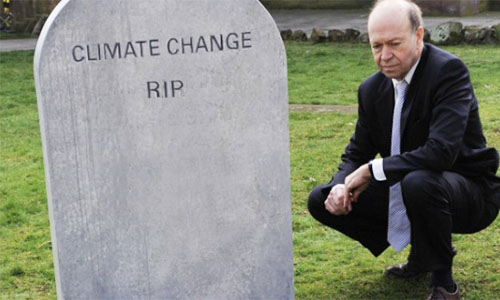The war in Gaza has entered a more consequential and unforgiving phase. Early this morning, Palestinian sources reported that Israeli tanks had begun advancing into central Rafah, following a night of intense airstrikes across the southern Gaza Strip. This military escalation came after Israeli Defence Minister Yoav Gallant announced the expansion of Operation ‘Oz veCherev’ (‘Strength and Sword’), aimed at dismantling terror infrastructure, neutralising Hamas operatives, and securing areas of Gaza to be integrated into Israel’s defensive perimeter.
The underlying reality remains: no state can allow a terrorist group to operate with impunity from its borders while holding its civilians hostage
The campaign, described by Israeli officials as an effort to ‘crush and clear’ Rafah of terrorists, is unfolding alongside widespread evacuations of the civilian population. Though controversial in some quarters, the underlying reality remains: no state can allow a terrorist group to operate with impunity from its borders while holding its civilians hostage – nor should the world expect it to.
Former hostage Amit Soussana, speaking yesterday at the US State Department, said: ‘Today I understand the true meaning of freedom in a way I never had before… to see the moon and stars and to breathe, to choose one’s own life, those are things I will never take for granted.’ Yet while the plight of the hostages held in Gaza – many tortured and murdered over the course of 543 days – continues to offer a moral lens through which to view the war, it is not the sole factor justifying Israel’s ongoing operations. The broader context – the convergence of transnational terrorism, Iranian sponsorship, and regional destabilisation – demands equal attention.
In parallel to Israel’s campaign, the United States is rapidly reinforcing its military across the Middle East. On Monday, the Pentagon publicly confirmed the aircraft carrier USS Carl Vinson will soon be sent to the Middle East, where it will join the USS Harry S. Truman. The Carl Vinson is expected to arrive within two weeks. The US has also deployed a THAAD missile defence battery and two additional Patriot air defence systems to the region.
Military logistics activity has increased accordingly. Western media outlets report dozens of American cargo flights in the Middle East over the past 48 hours, including takeoffs and landings from US bases in Qatar, Saudi Arabia, and other Arab states. Arab sources further report more than 140 such flights in the past two weeks alone, underlining the scale of this mobilisation.
This build-up coincides with continued US military action in Yemen. Overnight, American forces struck Houthi targets in the provinces of Sa’ada, Hajjah, and Hodeidah. In Hodeidah, a strike hit the water corporation building in the Mansuria governorate, reportedly killing four Houthi government officials. These strikes come amid ongoing Houthi disruptions of international shipping through the Red Sea, which directly impacts global commerce.
Yesterday, the United States also imposed new sanctions targeting the Islamic Republic of Iran’s weapons procurement networks. The State Department announced measures against six entities and two individuals based in Iran, the UAE, and China. These actors have been accused of being involved in the acquisition of components for Iran’s ballistic missile and drone programmes, specifically for use by Iran-based Qods Aviation Industries. In the words of State Department spokesperson Tammy Bruce, ‘Iran uses this technology and the proceeds from arms sales to bolster its military industrial base to build missiles and UAVs, which are used against fellow countries, as well as exported to Russia, terrorist proxy groups around the Middle East, and to other actors of concern.’
The cumulative effect of these developments is a regional alignment extending beyond containment, and increasingly geared toward confrontation. Satellite imagery released yesterday from the British military base in Diego Garcia, the largest island of the Chagos Archipelago in the Indian Ocean, revealed for the first time that six stealth B-2 strategic bombers are now based there. These are American heavy strategic bombers designed to penetrate dense anti-aircraft defences. Such a significant force buildup is hard to dismiss as merely psychological warfare.
Those who still perceive the Gaza war as a localised conflict would do well to reconsider. The threat posed by Iranian-backed networks is global in nature. On Tuesday, Spanish authorities arrested a Hezbollah cell operating in Barcelona. According to Spanish security sources, they have been accused of being Shiite operatives linked to Hezbollah, tasked with providing logistical support for the manufacture of drones and drone accessories.
Meanwhile, Israeli and western intelligence confirmed that an Israeli airstrike in Beirut’s Dahiyeh district eliminated Hassan Ali Mahmoud Bdeir, a senior operative in Hezbollah’s Unit 3900 linked to Iran’s Quds Force. Bdeir, who reportedly served as deputy to Hezbollah’s chief coordinator for Palestinian affairs, played a central role in a rare joint Hezbollah-Hamas network planning a large-scale terrorist attack abroad. Israeli officials stated the plot, if successful, could have resulted in the deaths of hundreds of Israeli civilians. A photograph published by Lebanon’s An-Nahar newspaper shows Bdeir aboard a plane with former Quds Force commander Qassem Soleimani and Abu Mahdi al-Muhandis, both killed in a US airstrike in 2020.
All of this points to a stark truth: the war that began on 7 October 2023 is not just Israel’s. It is part of a wider confrontation with an axis of radical, well-armed, and ideologically committed actors who are as willing to hijack cargo ships as they are to plot mass-casualty attacks in European cities. The illusion that this conflict can be compartmentalised – either geographically or morally – has now been shattered.
Criticism of Israel’s military tactics will, inevitably, continue. But those critiques must not obscure the broader reality: Israel is fighting not only to protect itself, but to push back against a regional order in which terrorism is permitted to metastasise across the world. The obligation to dismantle that order belongs not to Israel alone, but to all who consider freedom, law, and security values worth defending.










